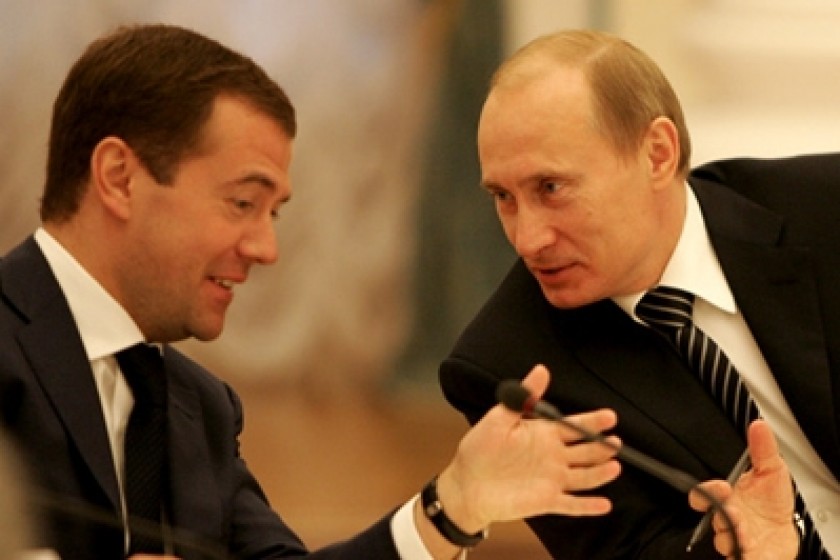
Political Debate Disrupted by Cyber-Attacks and Arrests in Russia
Reporters Without Borders deplores the many cases of censorship that marred parliamentary elections in Russia which were held on Dectember 4. As most of the traditional media, including TV stations, are controlled by the Kremlin, real political debate takes place only online. But coordinated cyber-attacks and arrests of journalists and bloggers were carried out in an apparent bid to suppress even the online debate.
Reporters Without Borders thinks that these incidents have obstructed open discussion of Russia’s political future and do not bode well for the presidential election due to take place in March.
Websites critical of the government were paralyzed before and during the elections by a series of Distributed Denial of Service attacks aimed as silencing them.
LiveJournal, a blog platform that hosts many anti-government blogs, was rendered inaccessible for three days beginning on 1 December. It suffered an attack on 28 November as well.
The targets of attacks also included the site of radio Echo of Moscow (echo.msk.ru ), the site of the independent daily Kommersant (kommersant.ru), the site of the election-monitoring NGO Golos.org, KartaNarusheniy.ru, an interactive map created by Golos for reporting cases of electoral fraud, the general news site Gazeta.ru, the site of Lenizdat, which covers political news in Saint Petersburg (lenizdat.ru), etc.
Some of the attacks on these sites began a few days before the elections, paving the way for the massive attacks of 3 and 4 December. Most of these sites became accessible again as voting stations were about to close in central Russia, where the largest number of voters live.
In anticipation of this sort of problem, some news media and opposition groups had migrated their site content to online social networks and had told their readers to follow them on Twitter and Facebook if their sites went down.
Several journalists were barred from voting stations. According to Aleksandr Gorshkov, the editor of the independent news website Fontanka.ru: “In most cases, the reasons given for barring journalists was the fact that they had cameras and, via their photos, could publicize the personal data of voters.”
Although illegal, this was the reason that was given to a Fontanka.ru correspondent for preventing him from entering a voting station in the far-north town of Primorye. A reporter for the news agency Rosbalt was evicted from a polling station for photographing a ballot box. Vitaly Kamyshev, the correspondent of Radio Svoboda (the Russian-language service of Radio Free Europe/Radio Liberty), was denied access to the Central Election Commission and was stripped of his accreditation. The correspondents of the BBC and American Press Agency were arrested in a Moscow voting station and were held for an hour.
A number of opposition journalists and bloggers were briefly arrested during the last few days before the election.
The editor of the independent news website Besttoday.ru, Alexey Sochnev, was arrested on 2 December by police who, without showing any warrant, forced their way into his Moscow apartment, breaking the door.
The well-known blogger Maria Plieva was arrested while participating in a banned demonstration in Vladikavkaz, the capital of North Ossetia, on 3 December. She was released that evening and appeared in court that next day. A charge of hooliganism was finally dropped.
In Ulyanovsk, the blogger Oleg Sofiyn received an anonymous phone call in which he was told that he would end up with a “broken skull” if he continued to criticize the region’s deputy governor, Svetlana Openysheva.
The head of the NGO Golos, Lilia Shibanova, was arrested on the night of 2 December on arriving at Moscow’s Sheremetyevo airport and was held for 12 hours. Her computer was confiscated after being closely examined on the grounds that it could contain “material dangerous for national security.”
Earlier in the day, Golos was fined 30,000 rubles (720 euros) for allegedly publishing poll results during the five days prior to the elections. The same day, Golos was the subject of a one-sided report by NTV (a station owned by the state oil giant Gazprom) accusing it of being a western intelligence outpost.
Most of the traditional media, including TV stations, did not report these incidents, but provided generous coverage of Prime Minister Vladimir Putin’s party, United Russia, which won the elections.
 Videos
Videos Photos
Photos




Write a comment